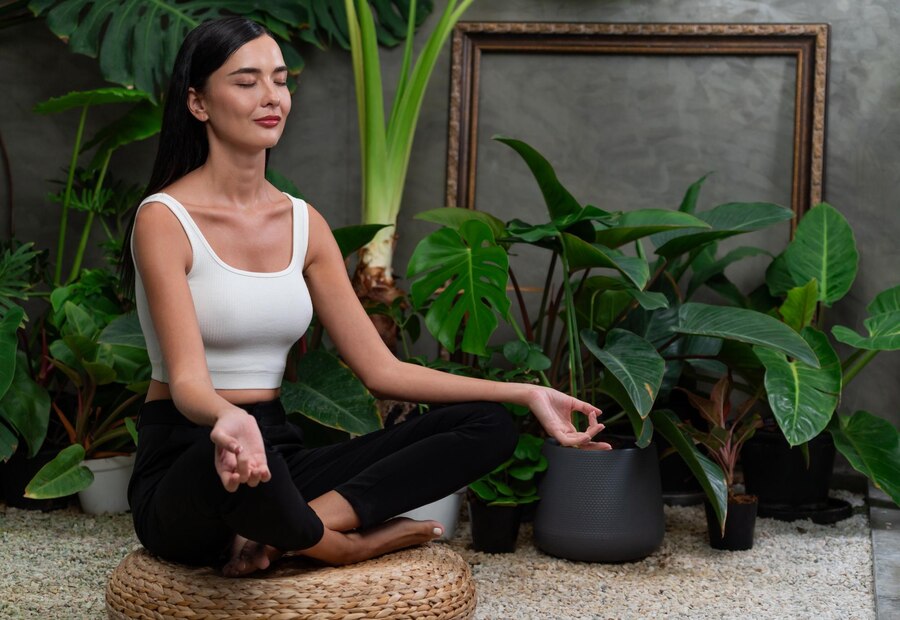Yoga is more than just physical exercise. It is a way of life, it is what connects the mind, body, and soul. Originating in ancient India, Yoga has always been around for centuries at stretch and has been included in all conscious and unconscious practices; from the toughest and most time-consuming meditations, to something as simple as breathing, yoga caters to everything. But can yoga be backed by science? How is yoga connected to mental health? And the most important question, can Yoga be looked at from a psychological perspective?
Understanding Yoga
The word “yoga” comes from the Sanskrit word “Yuj,” meaning to unite or join. This divine joining unites the trinity of mind, body, and soul in harmony. With due course of time, yoga as a practice and a lifestyle has evolved, and even though it finds its roots that go back in time, it has yet, surprisingly not turned obsolete and remained relevant all these years.
The Connection between Yoga and Mental Health
When Yoga claims to connect the mind, body, and soul, it also aims to improve our mental health by a great deal. Yoga can help in improving one’s mental health as following :
1) Reduces stress
Yogic practices involve deep sadhana (practice), dhyana (meditation), pranayama (breathing exercises), and asanas (physical movements or poses). Together, these help the mind and body to relax, and reach a state of calm. Yoga has proven to reduce cortisol levels in our body, which is the main hormone that causes stress.
2) Improves mood
Physical poses or “asanas” in yogic practices engage our physical body into different movements. This physical workout naturally releases happiness hormones like serotonin, dopamine, and endorphins. It is true indeed that yoga can uplift your mood, reduce your anxiety levels, and even decrease the symptoms of depression.
3) Regulates emotions
Yoga encourages and motivates us to be observant of ourselves. It includes slower breathing, careful movements, and a really high physical and mental awareness. When we observe our thoughts without any judgements, we reach a point of self acceptance. This helps us find a balance in our emotions and feelings, and lets us process them in a much better way.
4) Increased focus and concentration
Physical movements in Yoga do not only strengthen and balance the body, but when combined with meditation or “dhyana”, it helps us increase our focus and concentration. Yoga pushes us towards mindfulness and living in the present moment, focusing on our current thoughts. This increases our mental clarity and helps us in being more productive.
5) Improves the quality of sleep
Yoga practices help us develop a healthier lifestyle, a routine that we live by, and also reduces our stress levels. All of these factors together naturally improve the quality of our sleep. Yoga also helps in increasing the serotonin and melatonin levels, which are directly related to the amount as well as the quality of sleep one gets.
How can you incorporate yoga in your everyday life?
Yoga may seem to require a lot of work and time, but it really does not. It is not just a combination of practices, it is a literal lifestyle. Take little steps and you will reach your goal ultimately. Here is how you can incorporate yoga in your day to day routine :
1) Start small
If you’ve never done yoga before, start with short lessons that you can handle. That little bit of time every day can make a difference. There are a lot of websites and apps that have routines that are easy for beginners to follow.
2) Build a routine
To get the mental health benefits of yoga, you need to do it regularly. To form a habit, try to work out every day at the same time. Figure out what works for you, whether it’s a morning stretch to get you going or a relaxing practice before bed.
3) Listen to your body
You don’t have to be perfect or push yourself to the edge in yoga. Pay attention to how your body feels and change your routine based on that. If a pose hurts or makes you feel bad, change it or try a different one.
4) Focus on your breath
Your breath is a powerful tool in yoga. Use it to guide your movements and anchor your mind. Whenever you feel distracted or overwhelmed, take a few deep breaths to center yourself.
5) Combine yoga with other practices
Yoga goes well with healthy habits like eating right, getting enough sleep, and doing regular physical exercise. For the most benefits, include yoga in a larger self-care practice. This includes building a regular routine for physical exercises or mindfulness practices.
Conclusion
Don’t forget that yoga is a path, not a goal. Take your time and enjoy the process of getting to know yourself and healing. When you do yoga regularly, you’ll find that its benefits go far beyond the mat and improve every part of your life. So, spread out your mat, take a deep breath, and start your journey through yoga. Your body and mind will be grateful.















